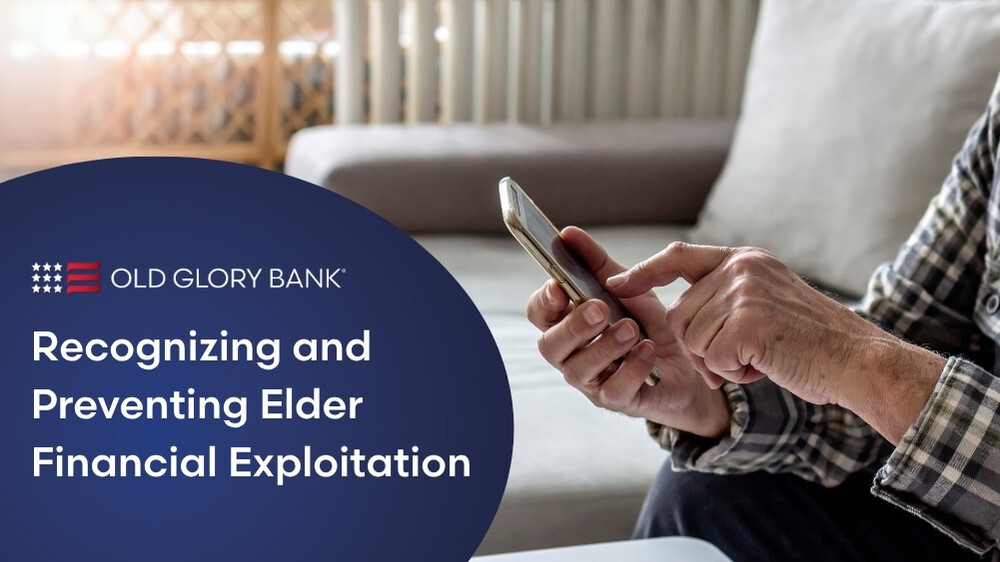In recognition of World Elder Abuse Awareness Month, we’re taking time to spotlight the importance of protecting the financial well-being and independence of our older customers.
Recent data from the Financial Crimes Enforcement Network (FinCEN) shows financial institutions are seeing a rise in reports of elder financial exploitation – highlighting just how common and serious the issue has become. At Old Glory Bank, we believe everyone deserves the freedom to manage their finances safely and with confidence – especially those who’ve worked hard to build their legacy.
What Does Elder Financial Exploitation Look Like?
Elder financial exploitation happens when someone illegally or improperly uses an older adult’s money, property, or access to accounts. It can happen in many ways – from outside scams to misuse of trust by someone the individual knows personally. Some common examples include:
- Scams and imposters: Someone pretends to be from the bank, tech support, or a government agency and convinces the older adult to send money or share private information.
- Romance scams: A person builds a relationship online or by phone, gaining trust before asking for financial help – often under the guise of an emergency or travel expense.
- Pressure from trusted individuals: A relative or caregiver may push an older adult to sign documents, share account access, or make financial decisions they don’t fully understand.
- Unauthorized account changes: New names are added to accounts, beneficiaries are changed, or unusual withdrawals begin occurring without a clear explanation.
Red Flags to Watch For
Keeping an eye out for changes in behavior or financial activity can go a long way in protecting a loved one. Here are some red flags that might indicate a loved one is at risk:
- Unusual account activity: Large withdrawals, new wire transfers, or spending that doesn’t match typical habits.
- Pressure or secrecy: A loved one seems anxious, hesitant to talk about finances, or suddenly wants to avoid conversations about money.
- Changes to legal documents: Unexpected updates to wills, power of attorney, or beneficiary designations.
- Social isolation: The older adult is being cut off from family and friends who might otherwise notice these changes.
If you notice these signs in a loved one, it’s important to act promptly.
How You Can Help
Keeping communication open and supportive is key. Encourage your older loved ones to share concerns and questions about their finances. If something feels off, don’t wait -contact the financial institutions involved and report your concerns to local Adult Protective Services.
Early action can make all the difference in protecting your loved one’s independence and peace of mind.
Helpful Resources
- National Center on Elder Abuse (NCEA): NCEA | Home
- Office of the Comptroller of Currency (OCC): Elder Financial Exploitation | OCC

